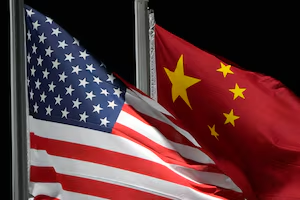Featured
article
- Get link
- X
- Other Apps
China's Strategic Outreach Amid Escalating Tariff Wars
As the United States, under President Donald Trump, intensifies its tariff policies, China has embarked on a diplomatic campaign to rally international support. Facing heightened tariffs on Chinese imports, Beijing has retaliated with its own measures, sparking a trade war that has disrupted global markets.
China's strategy has focused on strengthening ties with Europe and Southeast Asia. Premier Li Qiang's discussions with European Commission President Ursula von der Leyen and Commerce Minister Wang Wentao's engagement with ASEAN nations highlight China's efforts to counteract the economic strain. Despite these initiatives, not all nations are eager to align with China, reflecting the complexities of global trade dynamics.
This unfolding scenario underscores the intricate interplay of economic policies and international relations, with far-reaching implications for global stability and cooperation.
Popular Posts
Trump's Six Words: "I'm Going to Stop the Wars"
- Get link
- X
- Other Apps
Smart Savings for a Sharp School Start: Canadian Parents’ 2025 Guide
- Get link
- X
- Other Apps




Comments
Post a Comment